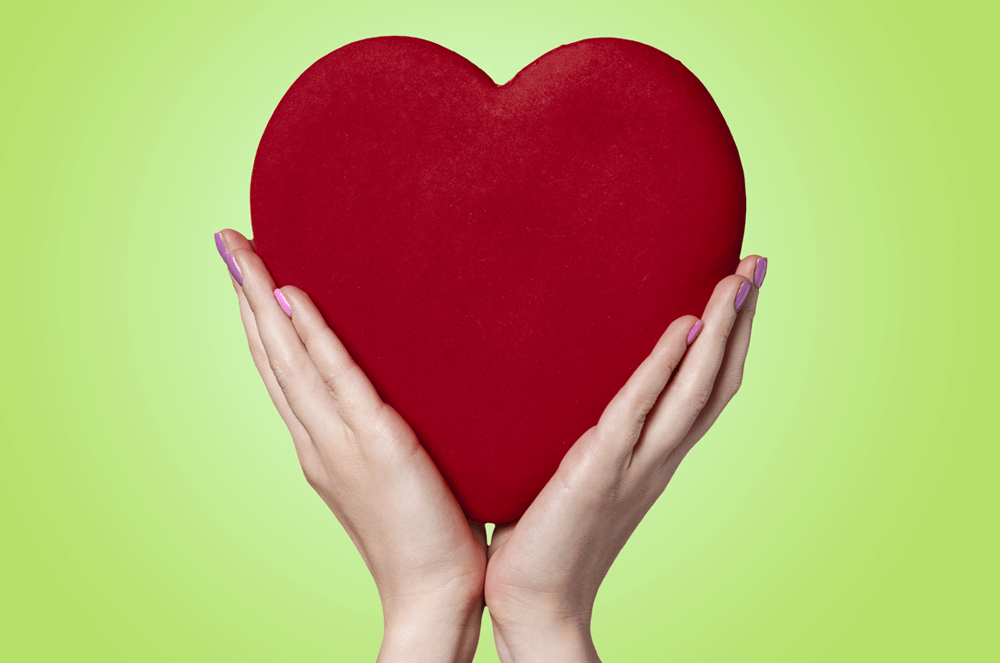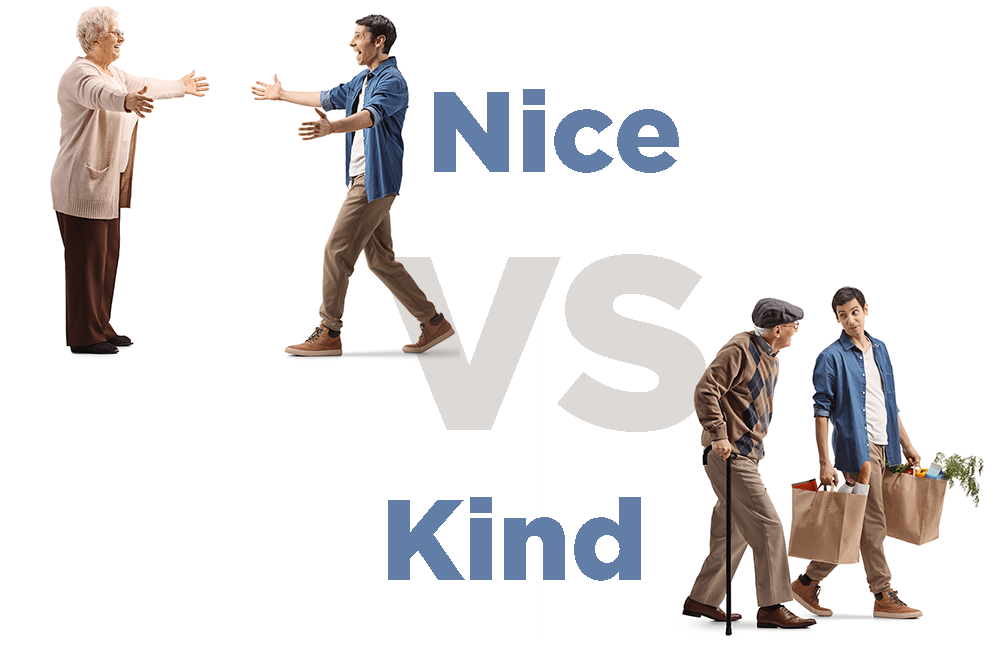
In some ways, you might say kindness is in fashion. We can snack on a Be-Kind energy bar while wearing a T-shirt that bears the same message and listening to a kindness podcast created by a kindness organization. Still, when we are cut off in traffic, embarrassed at work, or criticized by others, kindness appears to be in short supply.
This should come as no surprise. We live in such challenging times that it’s sometimes hard to think of anyone but ourselves and our own needs. For that reason, it’s important to remember there are many ways and reasons to practice kindness. Not only can it make us happier and healthier, but it can also make others kinder to us, to themselves, and to the planet.
What Is Kindness?
Put simply, kindness means being friendly, generous, and considerate, without expecting anything in return. Sabine Hellepart, a Vienna, Austria-based life coach, breaks it down into several categories: (1) being present, (2) seeing other people as they are, (3) trying to understand an individual’s needs and background, and (4) listening closely.
“Perhaps the most powerful act of kindness,” she says, “is that when everything is rushed and decided in a matter of seconds, we simply take time for another person.”
Giving to others is a powerful aspect of kindness. Rabbi Hanan Schlesinger, who grew up in New York and now lives in Israel, is a case in point. When he was young, he says, he was a man of ideology, and he admired people who were clever. When he grew older, he began to favor humanity over ideology, to admire those who were kind.
“Years ago,” says Schlesinger, “I was driving my young kids somewhere when I stopped for a hitchhiker.” The man said his son was in an accident and was being operated on, and that all his money had been stolen. In sympathy, Schlesinger drove him where he needed to go and gave him more money than he had ever given anyone in his life.
“It turned out,” he says, “that he was a con man. But you know what? I’d do the same thing again. Because the next time someone says they’re in trouble, they might really need my help.”
Benefits of Kindness
Schlesinger may have been conned, but he still came out ahead. That’s because a growing body of research supports the old adage that it’s better to give than to receive. For example, kindness has been proven to promote serotonin, dopamine, and oxytocin—brain chemicals that combat depression. In fact, according to a recent study in The Journal of Positive Psychology, kindness trumps cognitive behavioral therapy when it comes to reducing depression and anxiety. Acts of kindness also promote the body’s production of substance P, a neurotransmitter crucial to pain reduction. It lowers blood pressure, as well as the stress hormone cortisol. It also boosts the immune system, and in turn slows aging.
What’s more, kindness breeds kindness. It benefits relationships, so when you make someone else feel good, they are more likely to be kind to you and to others, which can start a chain reaction. Think about it: Your single act of kindness may help change the course of history. It’s that important.

Practicing Kindness
Hellepart sees kindness as an attitude that recognizes human dignity, rather than a strategy that is turned on or off as needed. Nevertheless, she says, it must be learned and rehearsed in order to become natural.
Here are 10 ways to get started.
- Be kind to your family. Kindness begins at home, says Schlesinger, and being kind to and in front of children fosters kindness in them. Being kind is a sign of strength, according to Dr. Robyne Hanley-Dafoe, a Toronto-based psychology instructor and author. It’s loaning someone your own strength and support, and you have to be strong to do that.
- Make a call or send a text to a friend or relative who is lonely or needs comfort.
- Be kind at work by offering to get a co-worker a cup of coffee or inviting a new employee out to lunch.
- Offer a favor, like walking a neighbor’s dog.
- Do those things you learned as a child, like showing gratitude and taking turns.
- Write a note of appreciation to a different person every day.
- Show interest in others. Ask questions. Listen to others in order to understand them, not to fix them or tell your own stories.
- Teach a skill to a peer.
- Be kind to strangers by volunteering in the community, picking up a piece of trash in a public place, smiling at someone, yielding the right of way, or giving up your seat on a bus.
- Practice and encourage authenticity. Be genuine and sincere in your communications with people.
Be Kind in Your Club
Toastmasters have all sorts of ways to practice kindness, from saying hello and goodbye to fellow members at meetings, to mentoring and introducing yourself to new people, and offering words of encouragement to those who feel they’re not making progress.
Helping fellow members who are suffering is also a gift of kindness. In 2011, a magnitude 9.0 earthquake struck Tokyo, triggering a tsunami that destroyed much of the east coast of the country. Toastmasters in Japan were among the many people affected. Members in the vicinity and around the world sent them messages of support and even gifts of clothing and food.
Writing on the District 76 (Japan) website, then-District Governor Seiko Matsumoto, DTM, referenced the acts of kindness, including “an Area Governor and a member making efforts to confirm [the] safety of members in the disaster-stricken areas and sending information about them; [and] members who are offering helping hands to the suffering members.”
“Yes. We are Toastmasters,” she added. “‘Helping each other’ is our spirit.”
Kindness as a Habit
Forming a habit of being kind is an easy way to ensure you are being considerate to others and to yourself. To develop such a habit, Jeff Hasenfratz, an executive leadership coach based in Shanghai, recommends trying a “noticing” practice.
“Notice those times during the day when you’re kind to someone,” he says. “Also notice the times when you aren’t as kind. Twice a day, take a few minutes to write down whom you were kind to and why, and whom you were not so kind to and why.”
After two weeks, notice if certain patterns emerge in how you offer, or don’t offer, kind words or actions, he says. If you discover a habit, mix things up.
As an example, Hasenfratz says, if you notice that you don’t tend to offer many kind words to certain colleagues, experiment by saying something nice to one or two of them daily, for two weeks. Notice how each of you responds. If the responses are positive, you can continue, or refine, your experiment. If they are negative, you can either stop the experiment or adjust it and try something different. This way, you will have good data on what works, what doesn’t, and why.
Being Kind to Ourselves
Similar to the flight attendants’ instructions for putting on your own oxygen mask before helping others, it’s important to take care of yourself too. Being kind to ourselves helps us care for others. And yet, many people struggle with doing this.
“For me, empathy for others was no big thing,” Hellepart says. “My challenge was practicing kindness to myself. The good thing was, I knew the elements and just had to rearrange and adapt them.” To that end, Hellepart began to practice mindfulness, deep breathing, and other nurturing rituals, such as Qigong, a practice consisting of gentle exercises that promote well-being.
It’s also helpful to give yourself a break, whether that means taking time for yourself or accepting your own humanity, flaws and all. Consider a vacation away from screens in order to spend time in the natural world. It’s worth treating yourself in other ways too, whether it’s eating chocolate, dancing, or doing something else you enjoy.
The Dalai Lama once said, “Love and compassion are necessities, not luxuries. Without them, humanity cannot survive.” When we make kindness a priority, we all reap the rewards.
Caren S. Neile, PhD teaches, writes, and stockpiles social capital in Boca Raton, Florida. Visit her at carenneile.com



 Previous
Previous

 Previous Article
Previous Article

